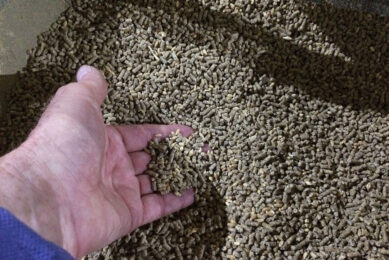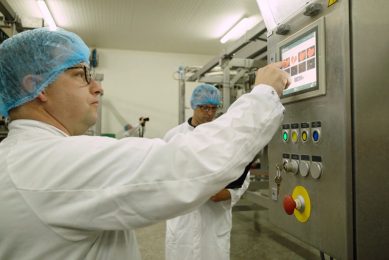Recent developments in the global poultry sector

World Poultry has concisely wrapped up the latest business and product highlights from the international poultry industry.
Cobb hatches first chicks from new Chinese project
The first parent stock have been delivered from the new hatchery that Cobb-Vantress has developed at Suizhou, in Hubei province, to supply the Chinese market. “We can now officially support the Chinese market with parent stock of the highest quality,” said Pelayo Casanovas, Cobb general manager for the Asia-Pacific region. “We hope this will be a game changer for the Chinese parent stock market and help the industry achieve better efficiency and yield.”
The chick truck delivered the first hatch to Xiantan Corporation in Shandong province. Cobb China technical service manager Chanchai Chaikittiporn was at the farm to supervise brooding preparations. “Xiantan farm did a great job in creating an ideal environment for the chicks’ arrival,” he stated. The hatchery forms part of the $35 million Cobb Tong Xing project to develop a grandparent complex to supply initially five million parent stock a year.
Hatchery expansion delivers major boost for Moyer’s Chicks
Pas Reform has completed a major hatchery upgrade and expansion project for its oldest customer in the USA, Pennsylvania-based Moyer’s Chicks. The company’s investment will significantly increase its production capacity to meet rapidly growing demand from customers in both North Eastern USA and Canada.
Family-run Moyer’s Chicks, a Pas Reform customer since 1989, has installed 9 new SmartSetPro-6 setters, to expand weekly hatching capacity by 330,000 day-old broilers. In addition, as a central component of the upgrade, the company has also installed Pas Reform’s SmartCenterPro hatchery information system, to provide end-to-end real-time monitoring, control and reporting capability, which will enhance workflow efficiencies, quality control and traceability.
Meyn launches new shackle stabilisation system
Meyn’s new shackle stabilisation system responds to the need for the stable positioning of birds during veterinary inspections, particularly at higher line speeds. “Animal welfare and quality are central to poultry processing, and veterinary inspections are essential if the industry is to maintain the trust of consumers,” said Pete van Poorten, Product Manager for the Evisceration Portfolio within Meyn. “Combined with our pan conveyors and line dividers, the new shackle stabilisation system helps inspectors to examine and assess chickens and chicken parts more easily and accurately than ever before.”
The system was developed in close collaboration with the Dutch government authority Nederlandse Voedsel- en Warenautoriteit (NVWA) whom Meyn meets with on a regular basis to discuss inspection requirements and animal welfare. Crucially, the new shackle stabilisation system works with all Meyn’s pan conveyor solutions, which synchronise the transport of eviscerated giblets with the eviscerated birds.
Cargill unveils new name for feed formulation business
After the successful integration of Format International in December 2015, Cargill has re-named its feed and food software business to Format Solutions. Under the new name and combined organisation, Format Solutions is building a state-of-the-art technology platform for formulation, operations and farm management software solutions for its customers.
Format Solutions specialises in the design, authoring and marketing of recipe optimisation, ingredient allocation, operational efficiency and food and feed formulation solutions for the animal feed, aqua feed, pet food, human food, premix and other industries. It has more than 17,000 users in more than 90 countries, and has team members located in offices in Minneapolis, MN, Fargo, ND, Woking, UK, and in additional locations around the world.
Vaccination Award for 2016 announced by WVPA
The 2nd WVPA-Merial Innovation in Vaccination Award was awarded to Prof Mohd Hair Bejo from Malaysia at the 3rd WVPA Asia Meeting in Manila, the Philippines for his work including the commercialisation of a Gumboro disease vaccine for hatchery use in Asia. He is now actively involved in the research and development of the next generation of Gumboro disease vaccines.
In announcing Prof Bejo as winner of the 2016 Award, Merial’s Andreas Herrmann highlighted the importance of such vaccines to the poultry industry and the Professor’s parallel career in academia where he has supervised numerous post graduate students, many of whom have focused on aspects of immunology and vaccination.
Feed costs cripple BRF’s profit potential
BRF, the world’s largest poultry exporter, has missed third-quarter profit estimates by a large margin after costs rose at a faster pace than revenue. The São Paulo-based company’s net income tumbled 97% in the last quarter to 18 million reais ($5.7 million) from the same quarter a year ago, as the company continued to struggle with soaring corn prices.
A drought affecting Brazil’s main winter corn crop earlier in 2016 slashed grain output. Record exports of the main animal feed ingredient over the past year and slack demand for meats in Brazil’s severe economic downturn have also complicated business for the sector. Protein producers across Brazil have trimmed 15% of their output capacity in recent months in response to the high feed costs that they have been unable to pass on to consumers, who are struggling with the country’s worst recession in eight decades.
US Chicken Council launches new blog, Instagram page
The National Chicken Council (NCC) in the US has launched a new blog – The Cluck – and a new Instagram account as part of its Chicken Check In initiative. The Instagram page features pictures from chicken farmers from across the country going about their daily business on their farms, caring for their flocks.
“Chicken farmers and company personnel take pride in the care of their chickens, and the fact is that our national flock is as healthy as it’s ever been, but we know it’s on us as an industry to do a better job of providing more information about how the chicken we feed our families is raised and produced,” said Tom Super, NCC senior vice president of communications. “The new blog and Instagram page offer 2 more vehicles for us to that.”
Global Egg to purchase Cargill Etobicoke egg facility
Global Egg Corporation has entered into an agreement to purchase the Etobicoke egg processing facility from Cargill who have owned the facility since 2016. Although terms of the sale are not being disclosed, Cargill’s US egg processing facilities are not affected by this sale. The company’s US egg business remains an integral part of Cargill’s protein growth strategy.
Over the past year, Cargill protein group’s customer-first focus has led to $500 million of investments to grow this Wichita, Kansas-based business. Those investments include construction of a $50 million beef distribution centre at Dodge City, Kansas.; $111 million for conversion of a facility in Nebraska to better serve cooked meats customers; $27 million to expand egg processing capabilities in Michigan; and the purchase of a beef processing facility in South Carolina and a custom cooked meats business with operations in Fort Worth, Texas, and Nashville, Tennessee.












